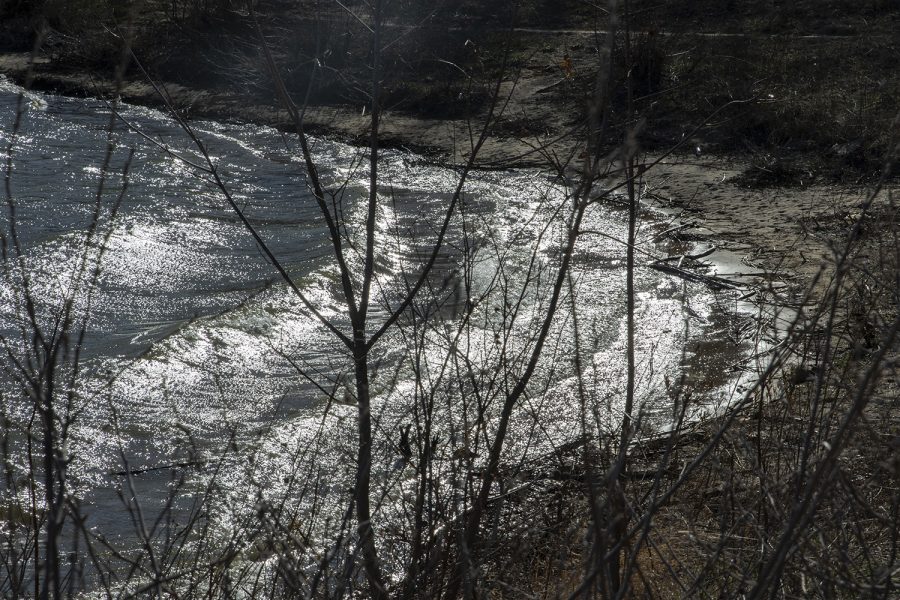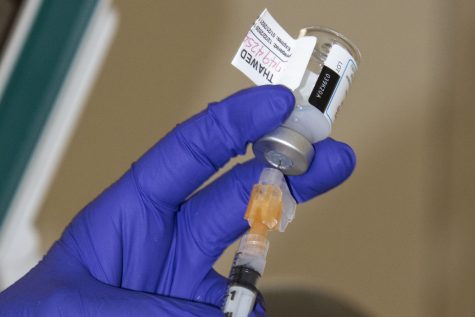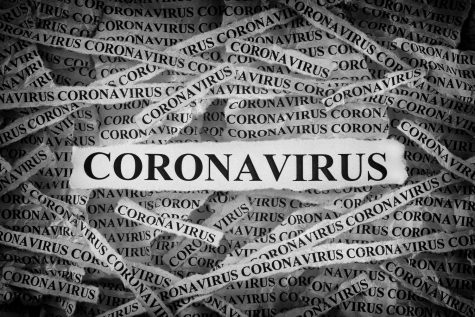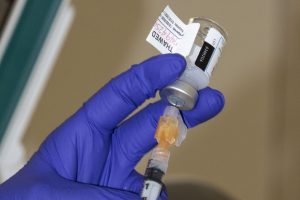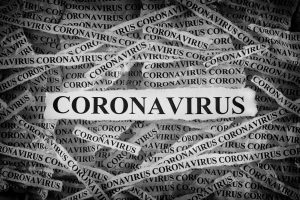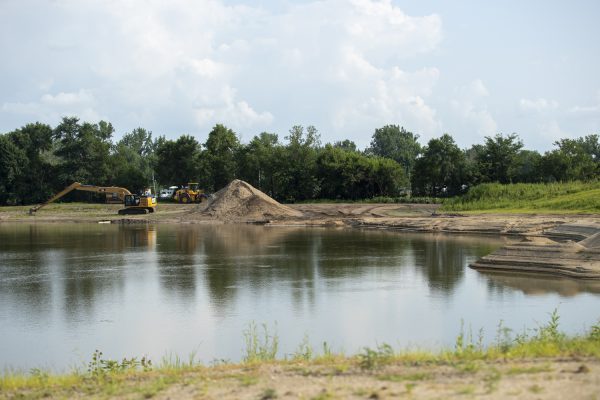Iowa City sees large fish kill because of extreme winter conditions
Three Iowa City recreation areas are checked daily by maintenance staff to remove fish carcasses. Lower oxygenized water resulted in a fish kill this spring.
Terry Trueblood Recreation Area is seen on Monday, March 29, 2021.
March 30, 2021
Three ponds in Iowa City recently experienced a large fish kill, leaving an unpleasant sight and smell at city parks.
Fish kills are tracked by the Iowa Department of Natural Resources as an indication of the area’s water quality. In Iowa City, city officials say the once-every-few-year occurrence happened because of a lengthy period when bodies of water were covered with ice this winter. City Park, Sycamore Pond, and Terry Trueblood experienced fish kills.
Iowa City Assistant Superintendent of Parks and Forestry Josh Worrell said the extreme weather Iowa City experienced this winter caused the fish kill, and such an occurrence is not entirely uncommon — it is a situation the city sees every few years or so.
“In a situation like we had this winter where we had a prolonged period of cold weather, ice was on for a prolonged period of time, and another was snowpack on top of it, that just lowers the oxygen levels in the water, and that’s what causes the fish kills to happen,” Worrell said.
While 2021 data is not yet available on the Iowa DNR tracker, there were 16 fish kills reported in 2020. Since the department began tracking the phenomenon in 1981, there have been 986 reported fish kills in the state. The most concerning are ones that are caused or accelerated by human sources such as animal waste, ammonia or fertilizer, or pesticides. An estimated 47 percent of fish kills in the last 30 years were from such “anthropologic” causes, while a quarter were of unknown origin and 27 percent were of natural causes.
Worrell said ice cover will come and go or be thin in a typical winter.
“This year we had ice thicknesses of over 12 inches for months on end,” he said. “So, it didn’t allow any oxygen into the water at all.”
Park maintenance staff members have visited these locations daily, he said, checking on the ponds and removing any deceased fish and disposing of them at the city landfill.
Because of its unpleasant nature, the department received some calls reporting the fish kill and the inconvenience of it for those wishing to spend time at the parks and ponds, Worrell said.
“We took a few phone calls on it, not too terribly many, but we did take some phone calls,” Worrell said. “We were able to get on it right away and get it taken care of, so just kind of mitigate the exposure of it.”
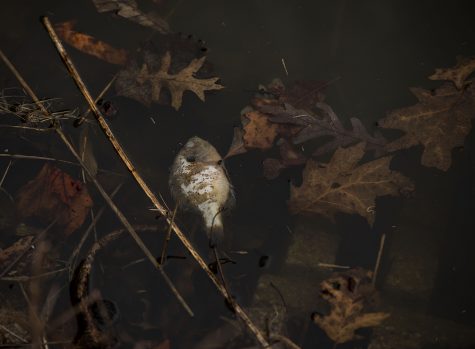
Iowa Department of Natural Resources Community Fishing Biologist Tyler Stubbs said the fish kill was not unique to Iowa City.
“It’s definitely something we see on a statewide basis,” Stubbs said. “It typically happens in years like this year, where we had quite a bit of ice coverage for a fairly long period of time.”
Iowa Department of Natural Resources Southeast Field Office 6 Supervisor Kurt Levetzow said his office has received many calls about fish kills occurring around the southeast Iowa region.
Levetzow said fish kills can be a result of natural causes and cold winter weather during this time of year, but fish kills can also be caused by inadequate application of pesticides by area farmers.
“When farmers apply it, whether it’s herbicides, pesticides or manure, you know for fertilizer value, when a lot of that stuff runs off, oftentimes fish kills can occur from those activities if done improperly,” Levetzow said.
Stubbs said fish kills are usually a short-term problem for ponds, and it most often occurs in ponds that are shallow or already overpopulated with fish.
Stubbs said there was a large increase in fishing licenses sales throughout the state in the past year because of COVID-19 encouraging more outdoor activities.
“We saw large increases in fishing license sales around the state, and especially in our urban areas like Iowa City,” Stubbs said. “And so, the interest and the desire to get out and enjoy the outdoors and fish is there, and it’s something that you can do outside, obviously, and you can be social, but you can socially distance at the same time.”
The recent fish kill in Iowa City occurred during a period of colder weather, which Stubbs said is convenient because it’s not an exceptionally popular time for community members to get outdoors and recreate at various parks.
“We just encourage people to get out and enjoy the outdoors,” Stubbs said.



